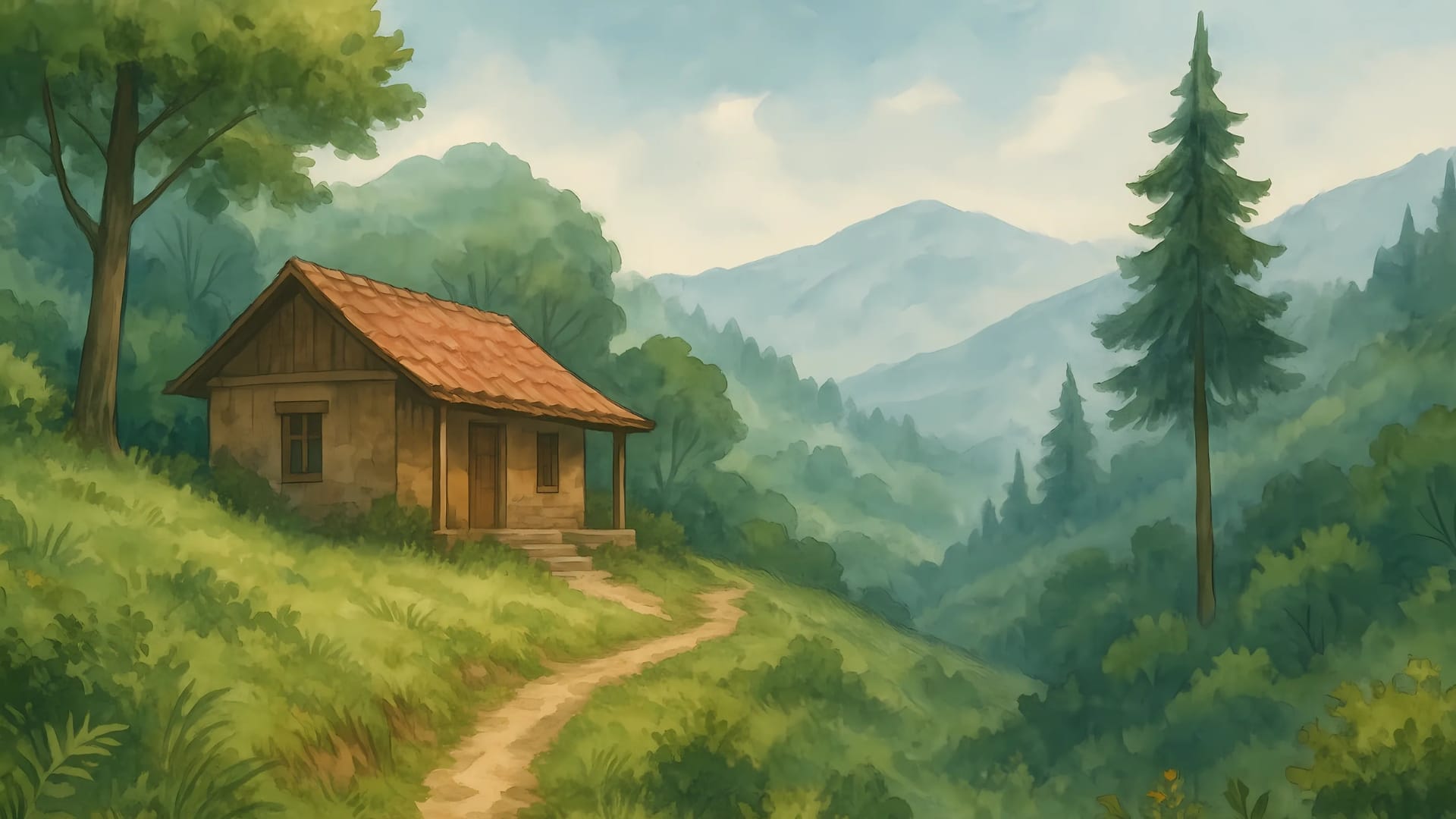The narrow hill path leading to Devdar Cottage had been nearly forgotten—just like the man who had once lived there.
Nestled on the outskirts of a sleepy town near Landour, where the wind sang through the deodar trees and the mist curled like an old memory, lived Mr. Rajan Mehra - a retired Hindi teacher with a thick silver moustache and eyes that once held stories of a hundred monsoons. Now, his stories had no listener. Only silence.
Each evening, Rajan would sit on a creaky cane chair by the window, a brass cup of chai warming his hands, watching the sun sink behind the mountains—alone. His only companion was a sleepy old cat named Chintu, and the unopened bundle of letters lying in a carved teak drawer.
Years ago, Rajan had a terrible argument with his only daughter, Sanjana. She had chosen to marry someone from a different caste. A man of kind eyes and soft words, but not of “their kind,” Rajan had said.
“You’re disgracing our family!” he had roared.
“And you're breaking mine,” she had whispered.
And that was the last time he saw her.
Seasons came and went, each one carrying the scent of possible forgiveness, yet none brave enough to ring his doorbell.
Until one quiet morning, when the postman handed him a pale blue envelope. The handwriting was unfamiliar, slanting gently like the path outside his house.
Respected Shri Rajan Mehra,
I am Nurse Kavita, writing to you on behalf of Sanjana. She is in our care at the hospice in Dehradun.
She is very unwell, sir. Cancer, at its last stage.
She talks of you often—of your bedtime stories, your mango pickle, the way you used to call her “gudiya.”
There’s a chair next to her bed she keeps empty. She says, “That’s for Papa. He’ll come.”
Time is running out, sir. Please come if you can. For her, and for yourself.
With hope,
Nurse Kavita
Rajan didn’t move for a long time after reading it. The words sat heavy on his chest like old regrets. He rose the next morning, bathed, packed his old leather bag, and began his journey down the winding road—for once, not to the bazaar or temple, but to make peace.
The bus ride to Dehradun was long and filled with memories. He remembered her fingers wrapped around his as a child, the way she sang in the kitchen, how she’d bring him guavas from the orchard. He had let all that slip away over a single decision.
At sunset, he arrived at the hospice. The scent of antiseptic mixed with the smell of flowers from the garden. A young nurse led him to a quiet room.
And there she was Sanjana. Frail. Her hair was gone. But her face, even now, looked like her mother’s.
She turned. Her eyes widened.
“Papa…” she whispered, voice trembling.
He walked forward and held her cold fingers.
“I’m here, gudiya,” he said softly. “I came too late... forgive me.”
“No, Papa. You came. That’s enough,” she smiled weakly.
That night, she slept with his hand in hers - and breathed her last just before dawn.
Three months later…
Back in Devdar Cottage, Rajan now wrote little poems and children’s tales again, just like he used to. He would gather the neighbour kids near the fireplace every evening and read to them in the soft glow of lantern light.
After every story, he would look out at the hills and say with a smile, “This one’s for Sanju.”
The mountains, wise and silent, stood as witness to a father’s healing heart.
Moral:
Forgiveness is a gift we give ourselves. Love may bend under the weight of pride, but it never truly breaks. Sometimes, all it takes is a single step to walk a thousand miles back home.






